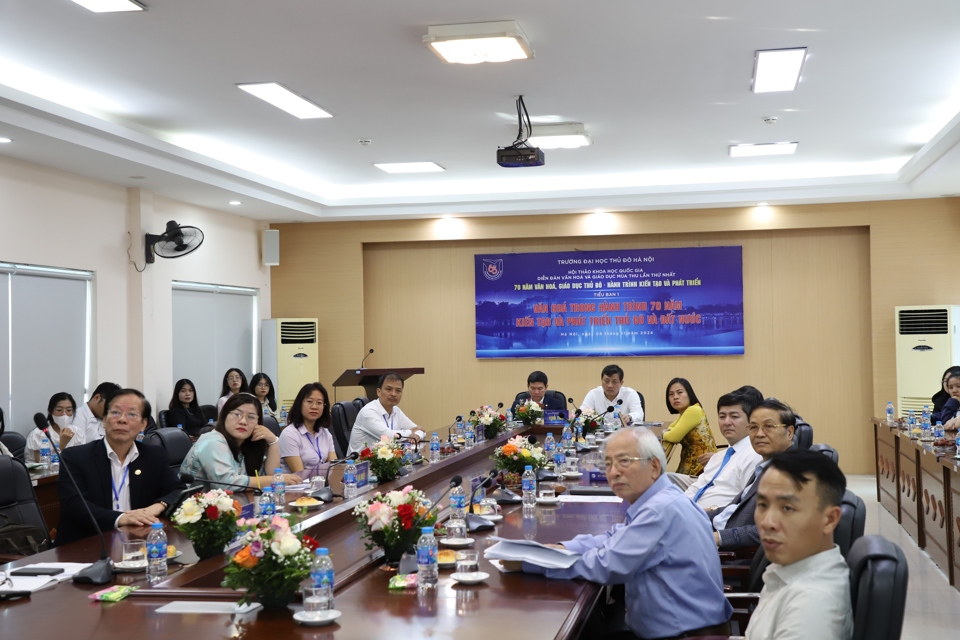
Preserving heritage, promoting culture
Speaking at the workshop, Chairman of the Hanoi UNESCO Association Truong Minh Tien, former Deputy Director of the Hanoi Department of Culture and Sports, emphasized: Hanoi is one of the leading cultural centers of the country, standing out with a rich, diverse and unique system of tangible and intangible cultural heritage, formed over thousands of years of history.
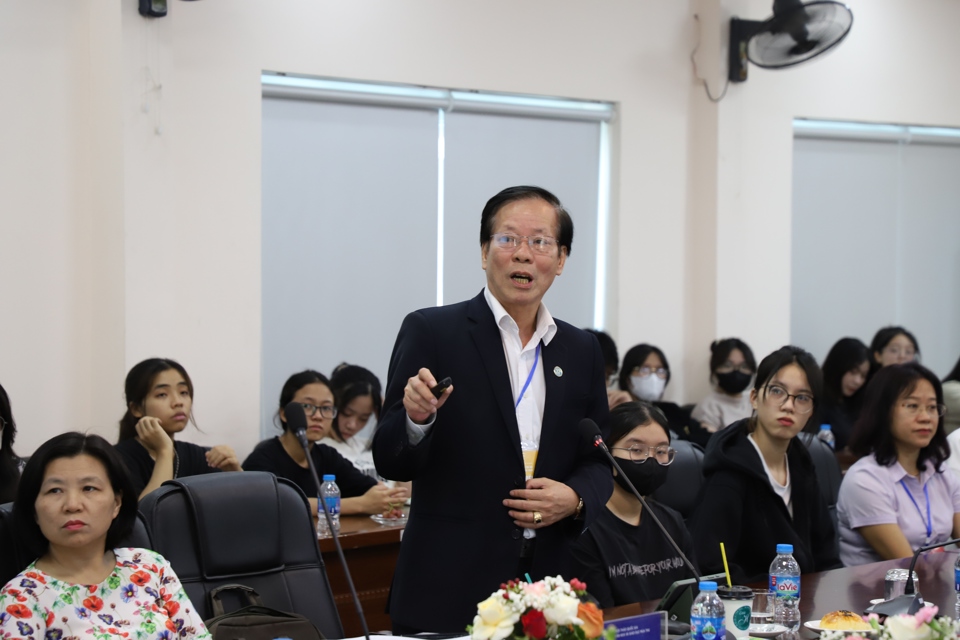
Currently, Hanoi leads the country in the number of cultural heritages. Over the past 70 years, especially since the expansion of the capital's boundaries, the management, protection and promotion of cultural heritage values in Hanoi has achieved many good results. One of the outstanding achievements is that the awareness of all levels, sectors and people towards the cause of preserving and promoting the cultural heritage values of the capital has been raised; the management, protection and promotion of cultural heritage values have gradually met the spiritual and cultural needs of the people, contributing positively to the socio-economic development of the city...
From the perspective of developing cultural industries in Hanoi, Chairman of the Hanoi UNESCO Association Truong Minh Tien proposed to continue promoting propaganda, raising awareness for cadres, party members and the masses about cultural industries, the amended Law on the Capital, the amended Law on Cultural Heritage; at the same time, he suggested that the city direct the review and preparation of dossiers to request UNESCO to register the cultural heritages of the capital. Regarding human resources, the staff of the State management sector and the cultural heritage sector at all levels need to be standardized according to job titles and positions; continue to select and use a team of experts and scientists on cultural heritage and have specific policies and mechanisms...
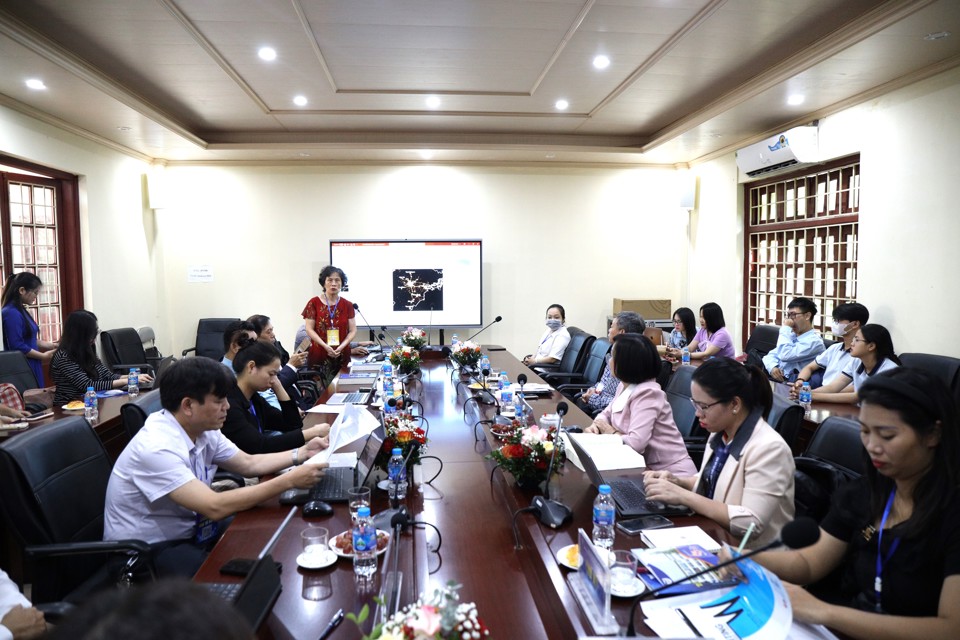
Presenting a report on the construction and development of culture and people of Hanoi Capital in the period of innovation and international integration, Associate Professor, Dr. Pham Duy Duc, Ho Chi Minh National Academy of Politics affirmed: to develop sustainable culture, the core foundation must start from education - where the thinking, awareness and qualities of each individual about cultural values are built.
Building and developing the culture and people of Hanoi Capital is a continuous and complex process, requiring coordination between the government, cultural organizations and the community. Hanoi has implemented many programs on cultural behavior education, building elegant, civilized and modern Hanoians; including campaigns on public cultural behavior education, building community awareness and maintaining traditional moral values.
According to Associate Professor Dr. Pham Duy Duc, in order to preserve and develop sustainable culture, it is necessary to promote cultural education in the education system, focusing on building civilized and modern qualities and preserving the traditional identity of Hanoi people. At the same time, increase investment in cultural and artistic educational institutions; promote international cooperation in training cultural human resources; promote the participation of businesses and cultural organizations in the training process;...
Agreeing with the above viewpoint, Professor Dr. Le Hong Ly, Chairman of the Vietnam Folk Arts Association, also said that universities and training institutions need to equip students with a clear understanding of the origins and core values of Vietnamese culture before teaching them the skills to exploit cultural values in their final year of study.
Promoting creative education and international integration
Regarding education, Associate Professor, Dr. Le Huy Hoang, Deputy Director of the Department of Education - Central Propaganda Department, said: Resolution 29-NQ/TW on fundamental and comprehensive innovation of education and training has special significance for the cause of education and training development, having a profound impact on all levels, sectors and classes of people. This is a comprehensive Resolution with many new viewpoints, goals, tasks and breakthrough solutions to revive the country's education, highly appreciated by domestic and international experts.
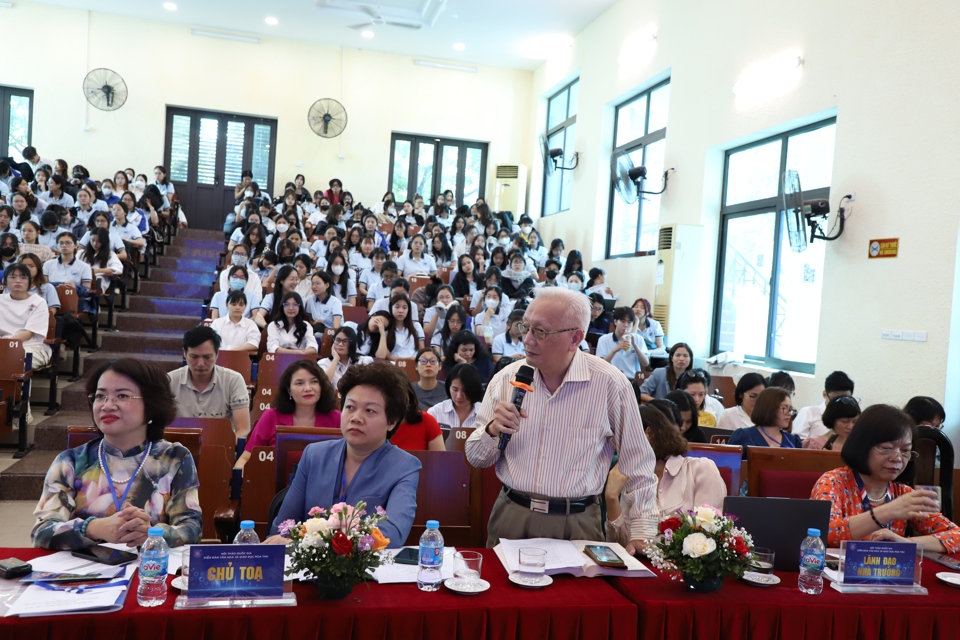
After 10 years of implementing Resolution No. 29-NQ/TW, in addition to the achievements, Vietnam's education and training still has many limitations that need to be addressed and overcome to implement the policy of "creating a breakthrough in fundamental and comprehensive innovation in education and training, developing high-quality human resources, attracting and employing talents". Education and training needs to transform strongly under the impact of the Fourth Industrial Revolution; at the same time, it must be a key factor in training, scientific research and technology development.
Along with effectively implementing the Resolution of the 13th National Congress and other resolutions of the Party, the Ministry of Education and Training has also focused on effectively implementing a number of tasks and solutions, namely continuing to promote fundamental and comprehensive innovation in education and training to meet the requirements of national development in the new period; strengthening the role of state management agencies in education and training; continuing to improve the quality of comprehensive education at all levels of preschool education; implementing a unified general education program nationwide; innovating and improving the quality of political, ideological, ethical, lifestyle, life skills, national defense education... for students.
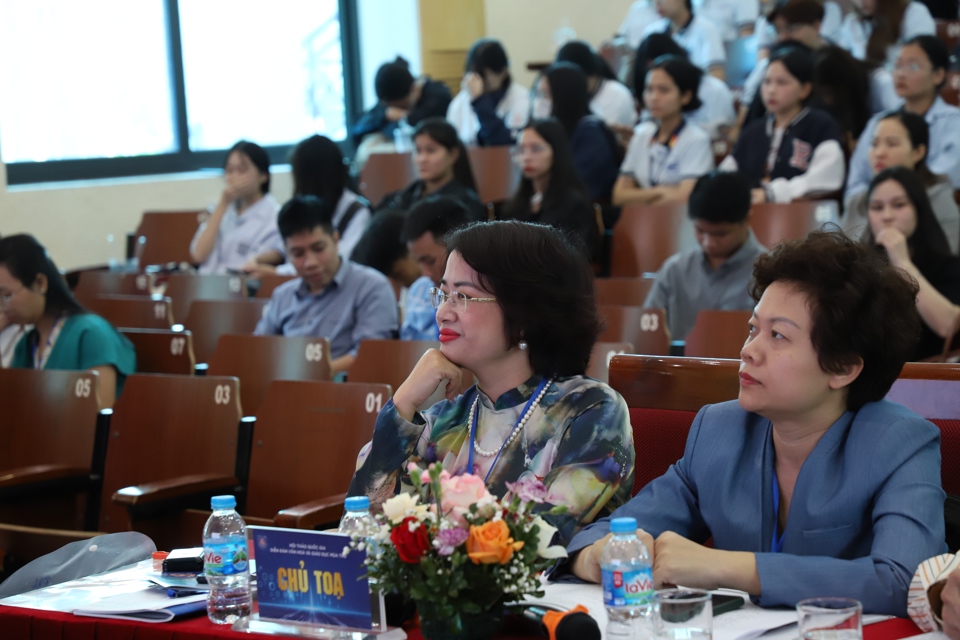
“Leaders at all levels, the entire political system, and the people must deeply understand and take drastic actions to realize the viewpoint that “Education and training is the top national policy, investment in education is development investment, given priority in socio-economic development programs and plans”. Education and training development must be given special attention and investment in the journey of industrialization and modernization of the country to 2030, with a vision to 2045”, Associate Professor, Dr. Le Huy Hoang emphasized.
In-depth research on creative education, Associate Professor Dr. Chu Cam Tho, Vietnam Institute of Science and Education, shared: developing creative education plays an important role in building a creative city. Based on summarizing some lessons learned about creative education in some creative cities in the design field in Australia, Singapore, and Japan, she proposed some solutions to suggest creative education for Hanoi in the strategy of building a creative city.
Accordingly, to have creative capacity, people need knowledge, creative skills, and especially respectful attitudes, emotions and creative motivation. Based on that, creative education must create an ecosystem that impacts the elements: knowledge, skills, attitudes, emotions, motivation, etc.
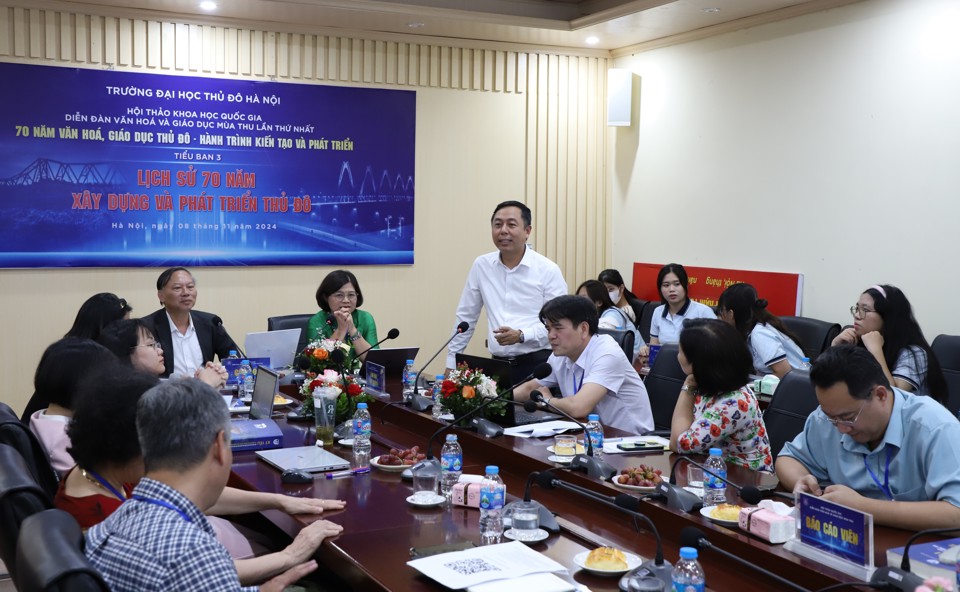
Associate Professor Dr. Chu Cam Tho said that Hanoi can implement 5 solutions to soon become a creative city, including: raising awareness of creativity, equipping knowledge about creative design; students practicing creative design skills; communicating, motivating, educating attitudes of respecting creativity, loving design, and improving products; organizing design idea competitions, design idea exhibitions for participants who are high school students; building a network of creative designers in schools/high school clusters in association with professional associations, organizations, and prestigious individuals.
On the same topic of education, Associate Professor Dr. Nguyen Chi Thanh, Head of the Faculty of Pedagogy, University of Education, Vietnam National University, Hanoi, raised the issue of smart school models based on the digital education ecosystem and development orientation for the capital; while Dr. Nguyen Vinh Son, General Principal of Wellspring International School, shared about Hanoi education in the context of innovation and international integration.
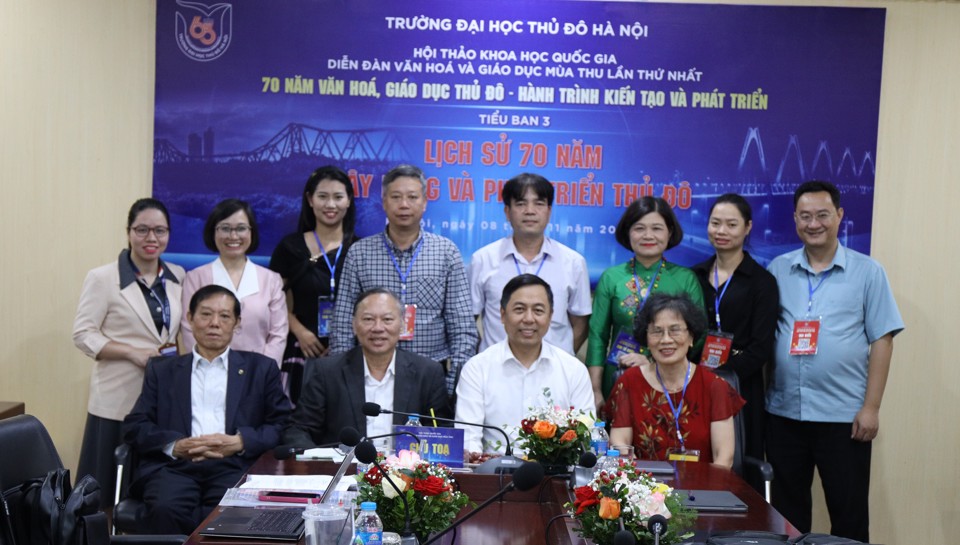
With many different ways of posing the problem, scientists, researchers, and managers have brought a comprehensive view of the capital's education and culture over the past 70 years; at the same time, they have contributed many ideas and solutions to promote the development of Hanoi's culture and education in the coming time.
At the thematic session "70 years of construction and development of the Capital", the conference heard a number of profound and practical reports, such as: Hanoi promotes and links regional economic development throughout the country; Planning and management of Hanoi city development: Current situation and development orientation; Indochina University with the modernization of Hanoi in the early 20th century: viewed from the position of Hanoi Capital University and the task of training high-level intellectuals; Impact of the Capital Law 2024 on the development strategy of higher education in the Capital and Hanoi Capital University; Bringing "Hanoi studies" from idea to reality, contributing to building elegant and civilized Hanoians.
Source: https://kinhtedothi.vn/van-hoa-giao-duc-70-nam-kien-tao-phat-trien-thu-do-va-dat-nuoc.html


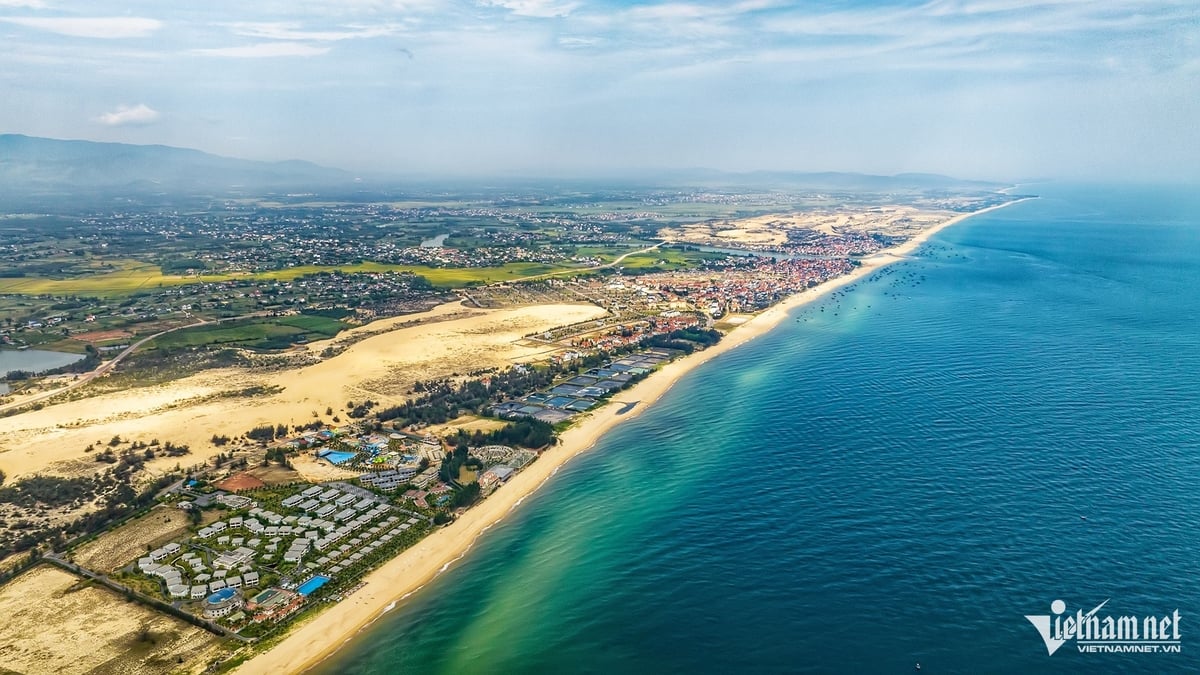
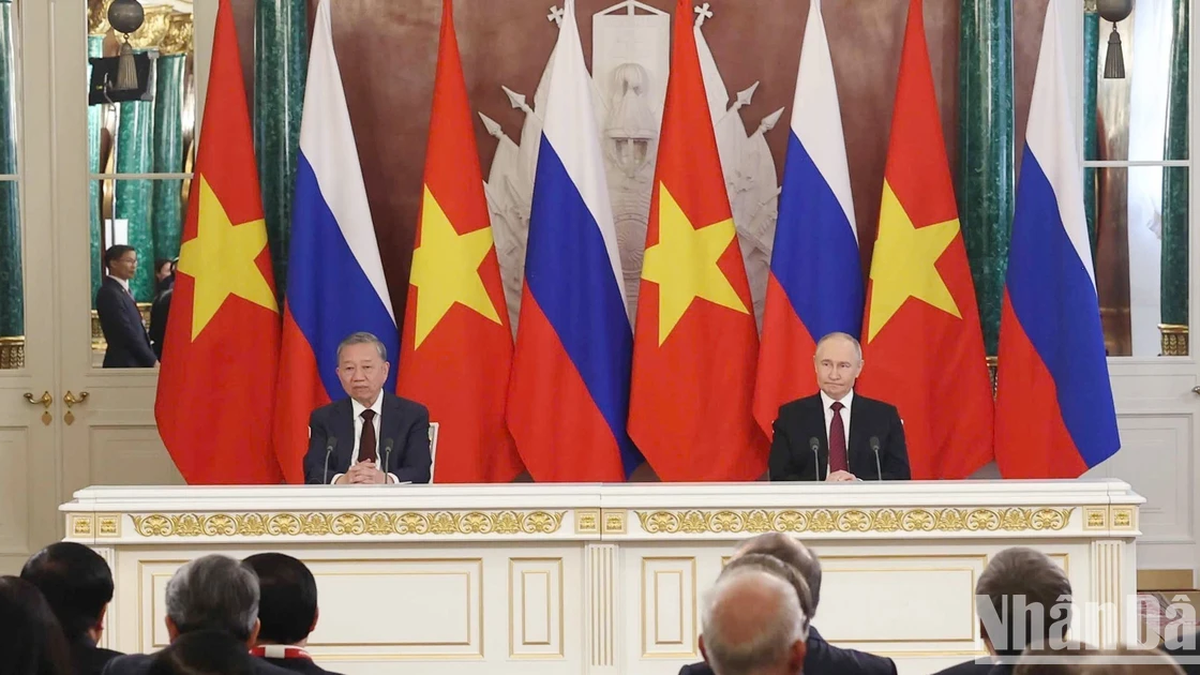
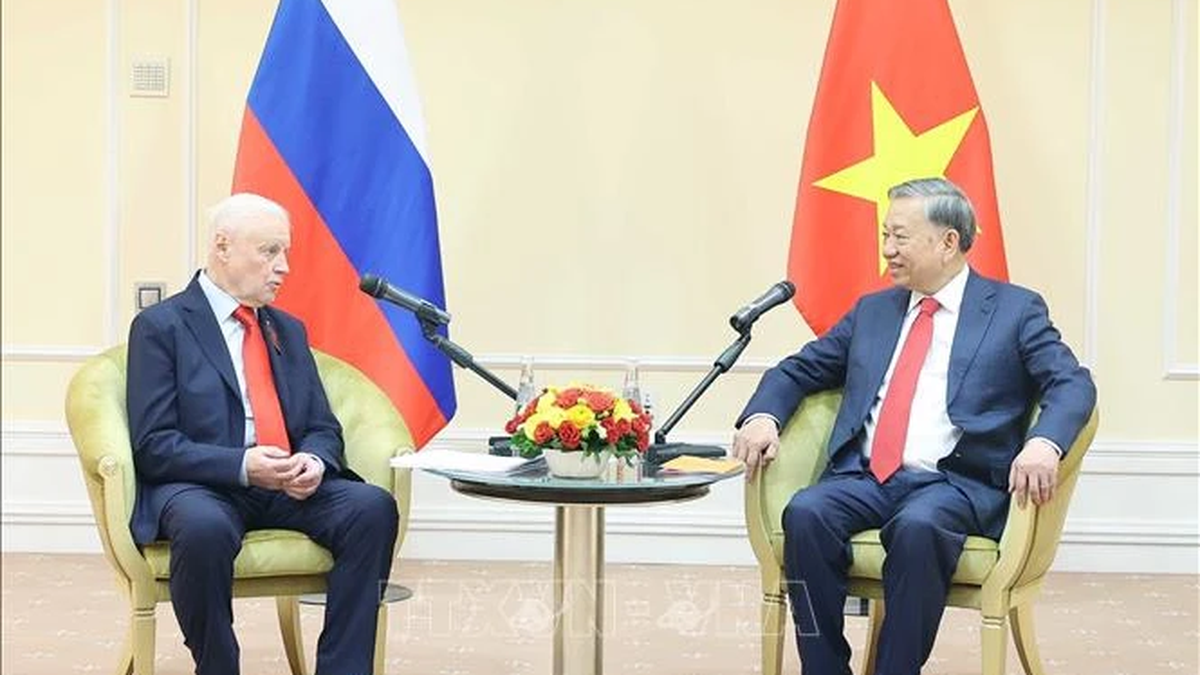

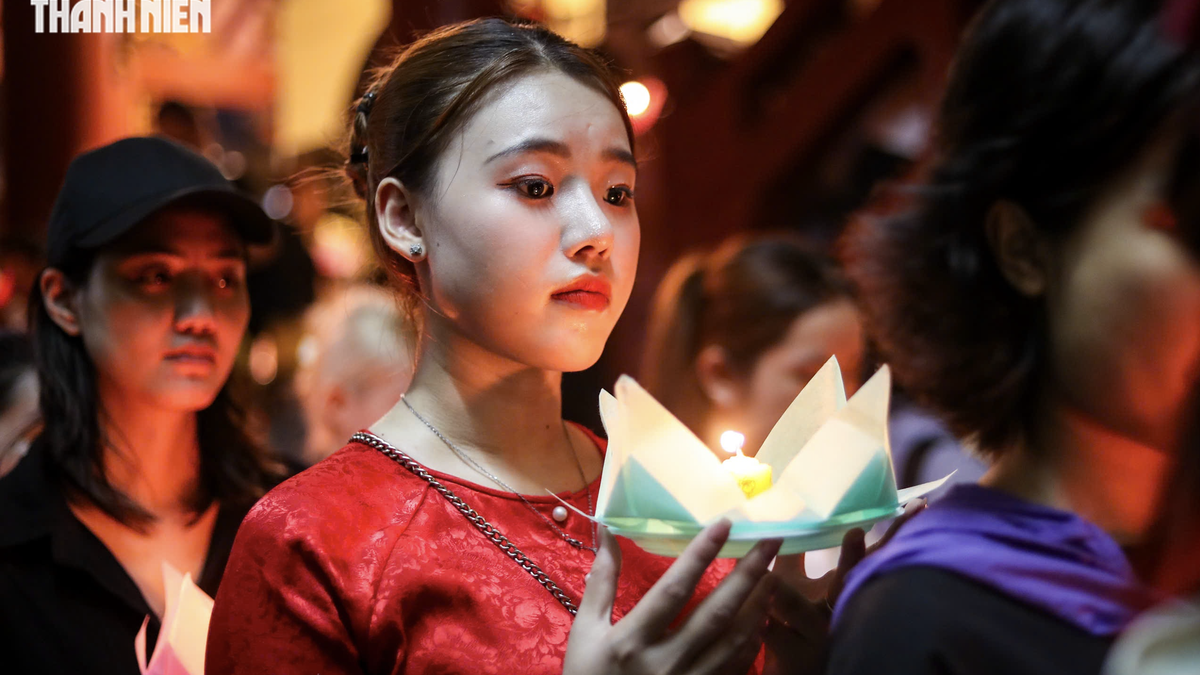
![[Photo] Prime Minister Pham Minh Chinh chairs Government Standing Committee meeting on Gia Binh airport project](https://vphoto.vietnam.vn/thumb/1200x675/vietnam/resource/IMAGE/2025/5/10/6d3bef55258d417b9bca53fbefd4aeee)


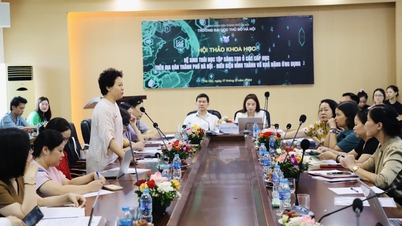
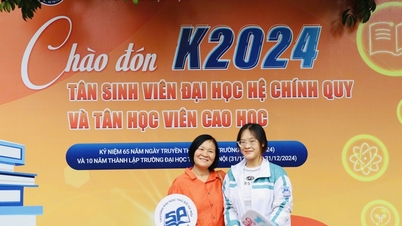
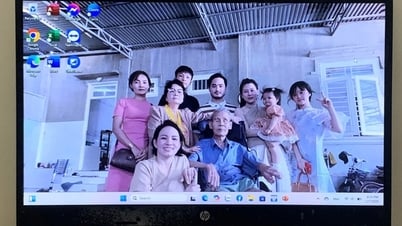
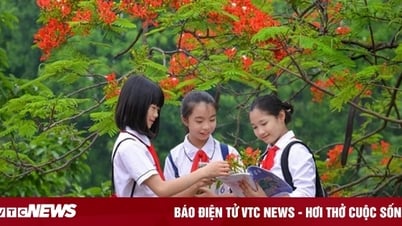
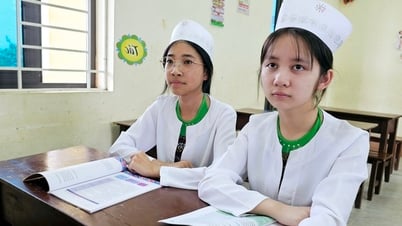
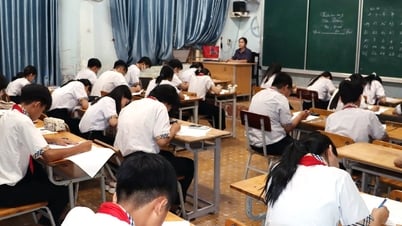
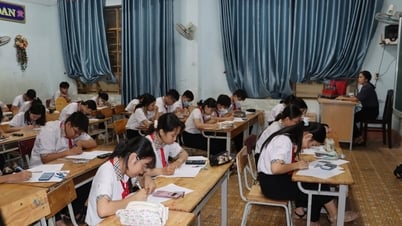
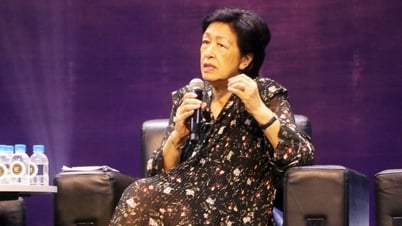







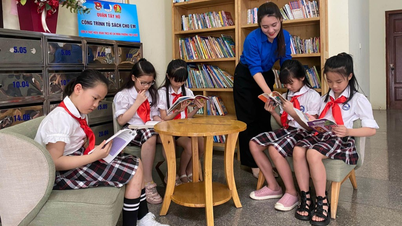

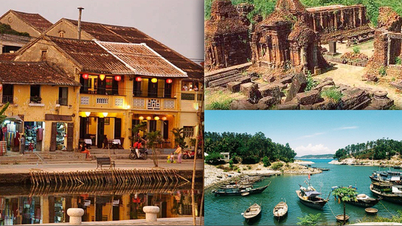
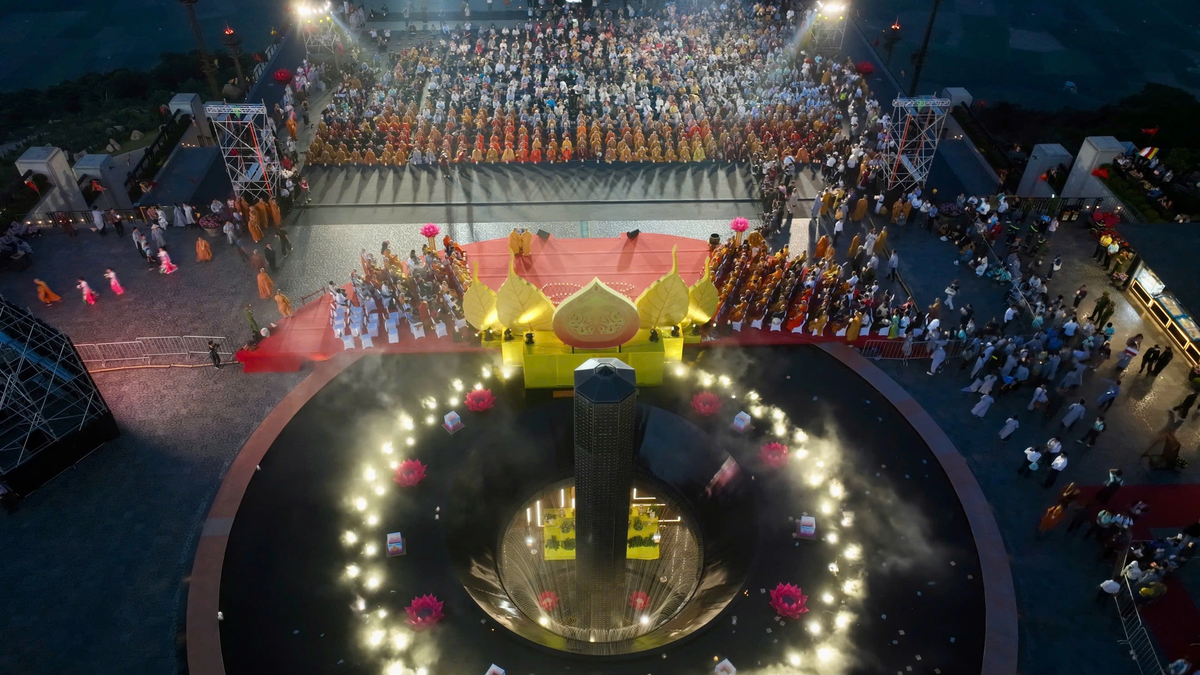

































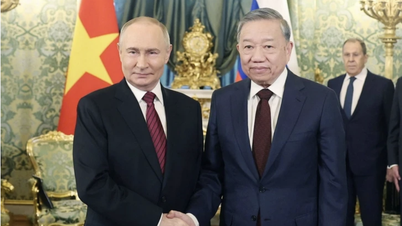
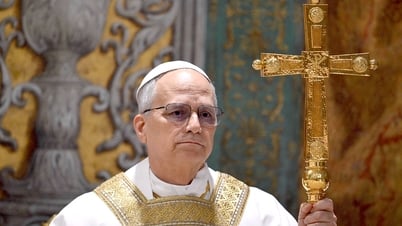
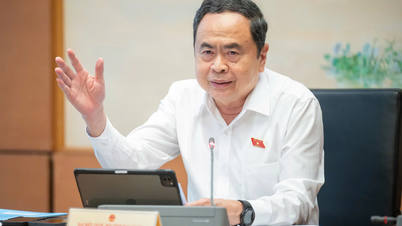
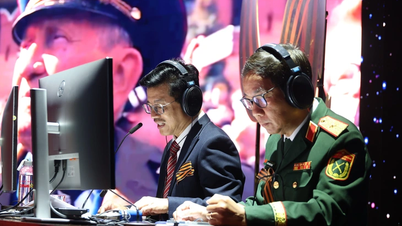












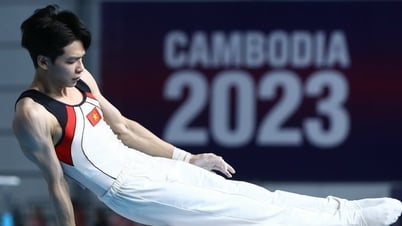

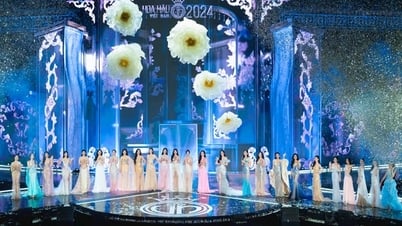
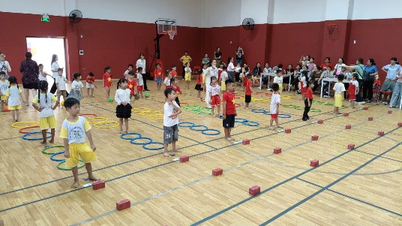
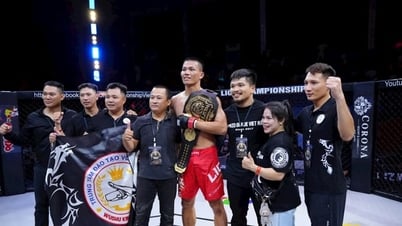










Comment (0)